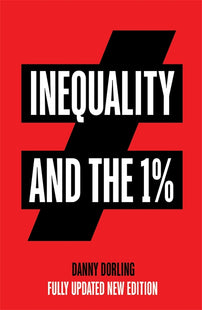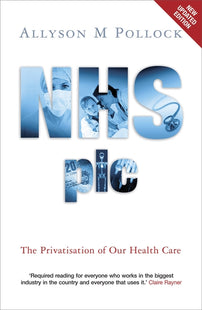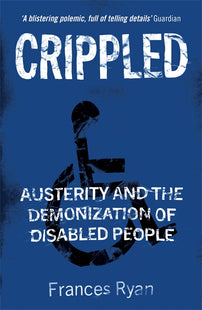Pandemic: The spread of economic insecurity - and what we can do about it
The current crisis has made the dangers of austerity painfully clear. Harry Quilter-Pinner argues for a new, popular consensus on the welfare state based on equality and justice.

On 31 December 2019 the World Health Organisation (WHO) was first made aware of a number of unexplained cases of pneumonia in Wuhan, a city in Eastern China. Doctors on the frontline had been sounding the alarm for well over a month but their calls for action were met with repression from the Chinese authorities. On 11 January the first death from what was by then recognised as a new virus, known as Covid-19 was formally recorded. And, shortly after, China put the whole region, some eleven million people, into lock-down.
Since then hundreds of thousands of people, from nations across the world, have tragically lost their lives as a result of Coronavirus. In an effort to manage the emerging health crisis, advanced democratic countries - from the USA to the UK - have followed China’s example and locked down their citizens. Not even during the height of World War II did the UK government take such draconian measures to limit the freedoms of individuals, families and communities. Deserted streets, empty schools and closed offices: this has become the ‘new normal’ in 2020.
Coronavirus is clearly a public health emergency on an unprecedented scale. But it has also quickly become a profound economic crisis as well. With millions of people on lock-down - unable to either work or consume - the UK, along with many other countries across the globe, is experiencing the deepest recession since the Great Depression. While the 2007/8 crisis took three years to play out, the ‘coronavirus crisis’ has taken just a few weeks. The government may have acted quickly to provide a substantial economic stimulus, but it is increasingly clear that it will not be enough to prevent social devastation for many.
This is because Covid-19 has exposed a second deadly pandemic: of economic insecurity. This is epitomised by the ‘gig economy’, meaning work undertaken by people on short-term or freelance contracts, instead of as permanent employees. If you have ever taken an Uber or ordered a Deliveroo, you have benefitted from the ‘gig economy’. For some, ‘gig work’ is freeing, with huge flexibility to determine working hours. But Covid-19 has highlighted its darker side. Most ‘gig workers’ cannot work from home. Unlike employees, they are not entitled to support if they get sick or are made redundant. If they don't turn up to work, they don't get paid.
But this period has seen not just businesses but also governments off-load the risks associated with ill health, unemployment, parenthood, disability and old age onto the backs of individuals. Successive governments have cut state funding and access to collective welfare provision, including higher and further education, social care and social security. A recent study found that across almost all areas of the welfare state, public funding (and provision) fell, with private schemes growing in response. This trend has also driven a huge growth in informal provision (e.g. informal care), charity provision (e.g. foodbanks) and unmet need. This what academics call ‘the great risk shift’.
After three decades, the government’s recent emergency measures - aimed at preventing unemployment and hardship - are the first major reversal in these trends. But they do not go far enough. Indeed, as it stands, the government sees them as temporary interventions, to cope with a one-off crisis. But we should not, indeed cannot, go back to the status quo. Instead, we have to recognise that Covid-19 has exposed a much deeper underlying problem with our social security system, after decades of neglect. We must use this crisis to rethink the ideas that led to this malaise; and to invent a better future instead.
Erosion - How we lost our social safety net
“The ideas of economists and political philosophers, both when they are right and when they are wrong are more powerful than is commonly understood. Indeed, the world is ruled by little else.” These are the words of the economist, John Maynard Keynes. They remind us to look beneath the surface; to unpick the beliefs and narratives that drive behaviours and policies. This is what we need to do now, in order to inoculate our politics against the economic insecurity that has swept across the UK in recent decades. Two arguments in particular must be revisited.
Firstly, proponents of the ‘great risk shift’ have claimed that the role of the state in the economy - and in particular in risk sharing - should be minimised because it is inefficient and results in worse outcomes. At the heart of this claim is the idea of government failure which emerged from free-market economists like James Buchanan and Milton Friedman. Part of the Chicago School of economics, these academics asserted that government intervention suffers from unintended outcomes. They concluded that the state is unable to outperform the market - even in the presence of a clear market failure.
One government failure in particular has been crucial in driving the policies which have led to the ‘pandemic of insecurity’. Moral hazard suggests that when people are protected against risks - particularly when this is done through the state - they will take less care in avoiding them. Counterintuitively, this will result in the outcome the insurance was intending to correct becoming more likely. A classic example of this logic is the argument that when employment benefit is more generous it increases the number of people who choose to be unemployed. A similar rationale can be, and often is, applied to health, education and workplace safety.
This is closely linked to the second big idea that right-wing proponents of the ‘great risk shift’ have used: that of ‘personal responsibility’. Unlike the technocratic concept of government failures, this is a moral argument, which claims that people can determine their own circumstances by making ‘good choices’ and must take ‘personal responsibility’ if their choices lead to undesirable outcomes. It implies, for example, that if people are unemployed it is the result of an internal, moral failing - for example, as a result of laziness or entitlement.
Collective risk sharing - in this case in the form of social security - should therefore be avoided (or at least be made less generous). To do otherwise would be to reward the ‘poor choices’ of ‘the underserving poor’ and to penalise those people who make the ‘right' ones. This was same idea that justified workhouses prior to their abolition in the early 1900s. But a similar logic, albeit in a less extreme form, has shaped government policy in recent decades as well. Indeed, these notions are still remarkably popular - particularly, though not exclusively, on the right of politics.
It is these two arguments - government failure and personal responsibility - that have shaped the policies that have led to the ‘pandemic of insecurity’ including a drive for lower taxation and cuts in public spending on welfare and public services; the introduction of ‘workfare’, meaning conditionality, means testing and sanctions in the benefits system to drive people into work; the marketisation, outsourcing and means testing of public services to increase efficiency; and reforms to the labour market, including de-unionisation and the rise of zero-hours contracts.
There is an alternative - Rebuilding our welfare state
Proponents of the ‘great risk shift’ have claimed that ‘there is no alternative’ to these policies. But we now know that this is simply not true. As economies like the UK and USA embraced this approach, a select group of Northern European countries took a different path. Across the channel, Denmark, Finland and Sweden - collectively known as the Nordic countries - opted for higher taxes and higher spending on publicly funded collective welfare systems. The result of this has not been slower economic growth or unsustainable debt; but lower deprivation, insecurity and inequality instead.
This may seem surprising. Afterall, it goes against everything neoliberal economists have told us. But it shouldn’t do. For some time now there has been a growing movement of thinkers who have set out to explain why the arguments that sit behind the ‘great risk shift’ - of government failure and personal responsibility - are wrong. Put simply: ‘there is an alternative’ to the ‘pandemic of insecurity’. But, to unlock it we must abandon neoliberal ideology and embrace evidence instead.
Firstly, this means recognising that the market is not more efficient at managing risk than the state. For centuries we have known that individual risk declines sharply when it is shared across a larger number of people. This is the basic insight behind insurance. The problem is that private markets often exclude large numbers of people, either because individuals do not want to or cannot afford to pay for it. The state can overcome this by compelling people to pool risk and by subsidising those on low incomes through progressive taxation. This reduces the overall cost of the insurance scheme and ensures everyone gets access to vital services.
We don’t have to look very far to see this in action. The Conservative MP Nigel Lawson once said that “the NHS is the closest thing the English people have to a religion”. The truth is we are right to love it: it is there for us - free at the point of need - when we need it most. What’s more, we spend less on the NHS than comparable private health insurance systems abroad, without correspondingly worse outcomes. Put more simply: collective insurance systems like the NHS are more, not less, efficient.
Secondly, it means we need to reject the ‘personal responsibility’ crusade. Covid-19 has reminded us that there are structural forces and events beyond our control. Everyone is at risk, regardless of the choices we make. As a society, we are only as strong, as our weakest link. But global economic crises, automation, and environmental disasters are similar in nature and are all likely to fundamentally reshape the UK in the 2020s and beyond. These shared risks demand shared solutions. Of course, this is not to deny the need for personal responsibility and choice, but rather to recognise the limitations of this moral framing.
Furthermore, there is also a growing acceptance, even amongst Conservative voters, that people often need support in order to make the ‘right choices’. This means going beyond the concept of negative freedom (meaning the absence of barriers and constraints to make ‘good choices’) and embracing the idea of positive freedom, the actual ability to take these ‘good choices’ in practise. Put more simply: by providing everyone with a set of basic capabilities - including a decent income, education and health - we ensure that they are able to make better choices.
The implications of accepting these arguments, after the Covid-19 crisis, are significant, not least because the government’s recent ‘emergency measures’ would need to become far from temporary. In fact, they should be the first steps in a paradigm shift in welfare policy. We must move from a liberal welfare regime - that lacks generosity and is highly means tested - to a ‘socially democratic’ one, with more generous, universal provision. This is the only way to create a more equal society.
The obstacle to delivering this is not the state’s ability to fund and deliver a more comprehensive welfare state. Instead, the challenge is winning popular support for these changes in what is, at heart, a (small c) conservative country. But it is far from impossible: after all, we have done it before. Now we must do it again. Let us hope so, because this virus is just one of many shocks that we will inevitably face in the ‘decade of disruption’ to come. We must ‘future-proof’ our welfare state now to ensure that we are ready for them.
[book-strip index="1" style="display"]Harry Quilter-Pinner is a Senior Research Fellow at IPPR, the UK’s progressive think tank. He writes here in a personal capacity.



